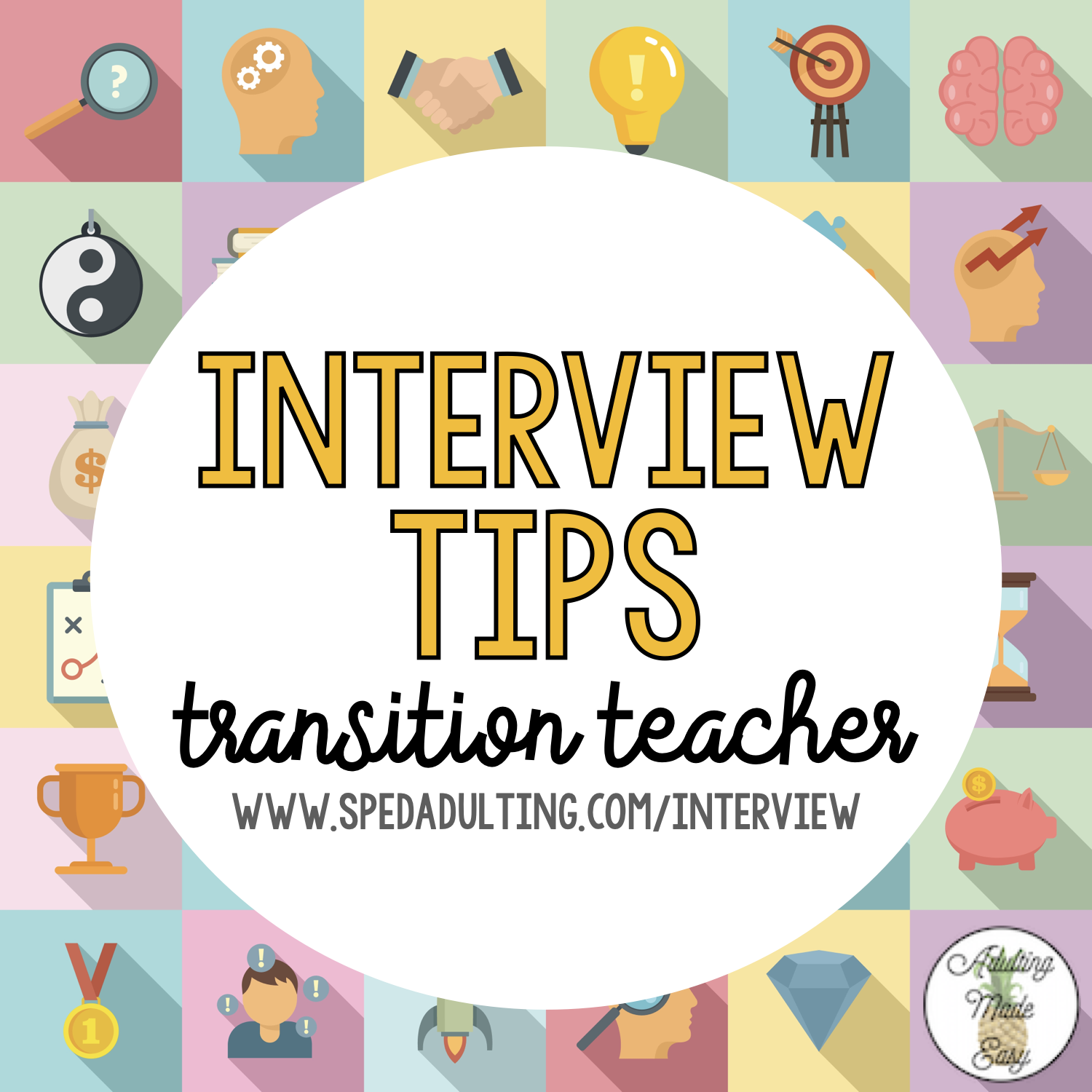It’s that time of year when you’re either looking to become a teacher or maybe you’re looking for a change in the classroom setting.
As with any teaching position, you’ll probably be asked the generic questions of what your experience in the special education field is, how you would handle staff conflict, what your strategies for behavior management are, how will you engage students and differentiate your instruction… and so on, which I will list below.
Keep in mind, every school, district, and classroom/program will look different. Try and do some research before hand to find out more information about the program you were interviewing at in order to adjust your answers to the interview questions or the questions you will ask.
Generic Special Education Teacher Questions:
- What is your experience in the (special) education field?
- Why do you want to be a special education teacher?
- How will you support staff?
- How will you handle staff conflict/disagreement?
- How will you utilize staff in your classroom?
- How do you feel about working with paraprofessionals that might be older than you and how would you build a relationship with them?
- What strategies do you have for behavior or classroom management?
- What is one of your biggest strengths/weaknesses?
- How will you differentiate materials?
- How will you create relationships with students and their families?
- How will you get to know students and their interests if they are non-verbal?
- Explain how often and how you will collect data – why is it important?
- Tell me about a difficult situation you were in and how you handled it.
- What strategies will you use to engage students during lessons?
- Explain how you would plan for your lessons?
- How will you handle a student that refuses to participate in a lesson or work?
- How will you meet a wide variety of learning needs for your classroom?
- Explain how you will write IEP goals for each student?
- If a student is injured, what steps would you take next?
- How would you handle a parent that is upset?
- What would you do if you were put in a co-teaching position?
- How would you implement inclusion?
- Explain the IEP process.
- How will you handle a student have a conflict with another student in another classroom?
Now, when it comes to specific questions that are going to be geared more toward transition teachers, the focus is primarily going to be focused on life skills, community skills, and vocational skills.
Transition-Specific Questions:
- Explain what an ITP is. (Transition Plan)
- Explain what an EXIT IEP is?
- How would you build relationships with community partners?
- What would you take with you on a CBI? (Community-Based Instruction)
- Where would you go on a CBI and what would you do?
- How would you utilize related service providers in the classroom or on community outings?
- What curriculum have you used?
- How will you make your lessons functional?
- What subjects do you view as top priorities to teach and why?
- How will you handle uncomfortable discussions that have to do with relationships/sex?
- How will you support students at their off-campus job sites?
Tips When Answering Questions:
My biggest tips to remember when answering interview questions related to transition would include incorporating in your answers how important it is getting to know each students’ strengths, preferences, and learning styles to help guide your lessons and IEP goals and your main goal is to build their independence in the home, community or at their future job. That’s really, what the transition program is all about and if you can confidently show that these things are a priority in your teaching, there’s no doubt you’ll get the job.
Now, just because you really want to be a transition teacher doesn’t mean you should settle immediately for the place you are interviewing at, so it’s important to ask questions that will help give you insight as to if you’re truly going to be happy at this place, or if you should keep searching for a different transition program that will fit your needs.
Questions to ask:
- Is there a mentor program or supports for new teachers?
- What curriculum will be provided?
- How are cooking lessons and community outings funded?
- What support is provided for a crisis (physically aggressive) students or students with social-emotional needs?
- Is there a planning period?
- If you report to a special education director or the principal?
- Student-to-teacher/staff ratio
- Are paraprofessionals full day or half day or in your class every day?
- Are the students provided with job coaches for on/off-campus jobs?
- Do students get grades or just progress on IEP goals?
- How many other self-contained (or similar to the position you are applying for) are at the school?
- What professional development opportunities are available?
- Who is responsible for scheduling and running IEP meetings?
- Is there a work experience program? – Do students participate in on-campus or off-campus jobs?
- Who is in charge of facilitating work experience?
- Are there any special programs like a computer lab, fitness lab, vocational lab…etc?
- Are there transportation vehicles for off-campus outings?
- What ages/grade levels are part of the transition program?
Good luck at your interview!
Thanks for reading!

You might also enjoy:




